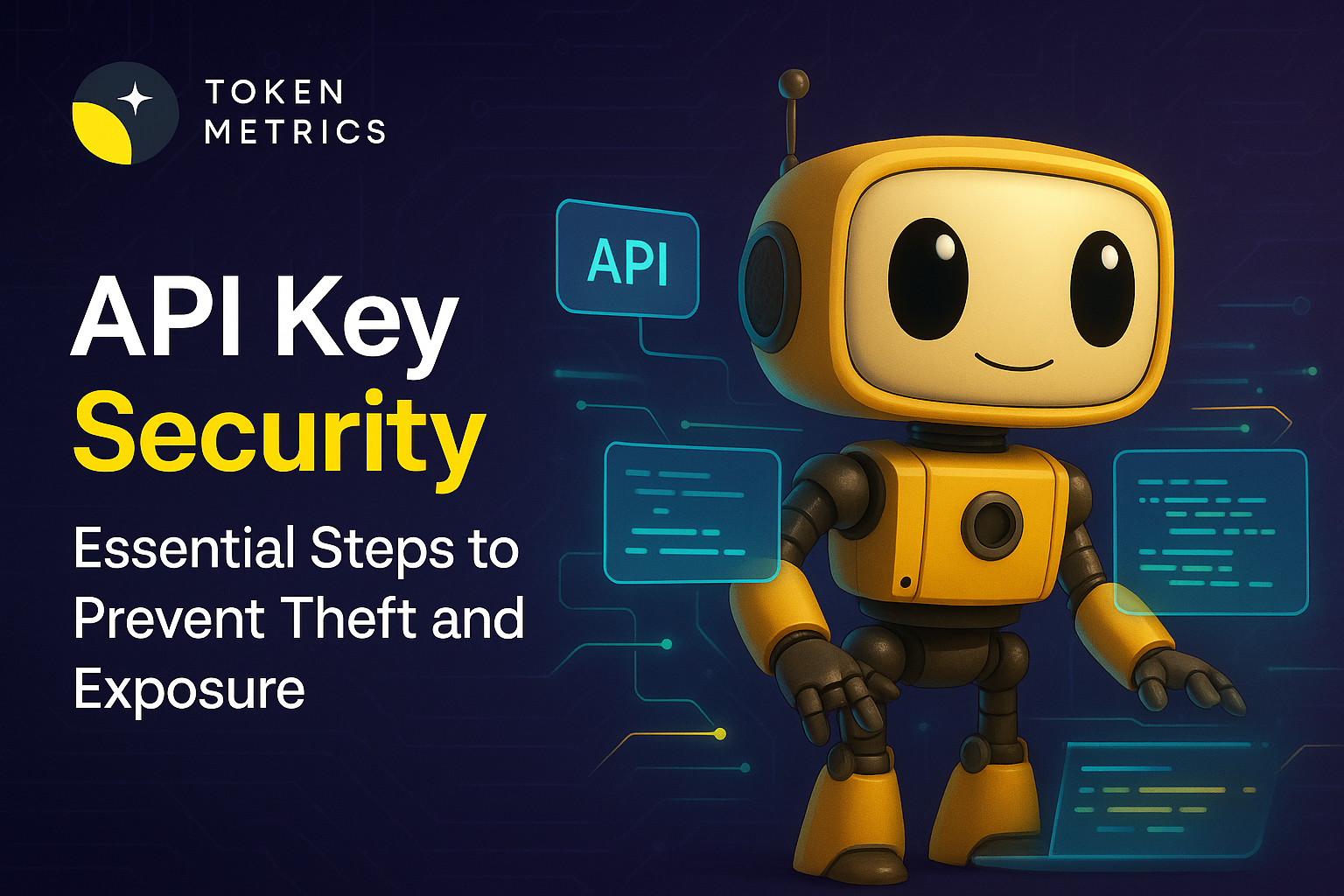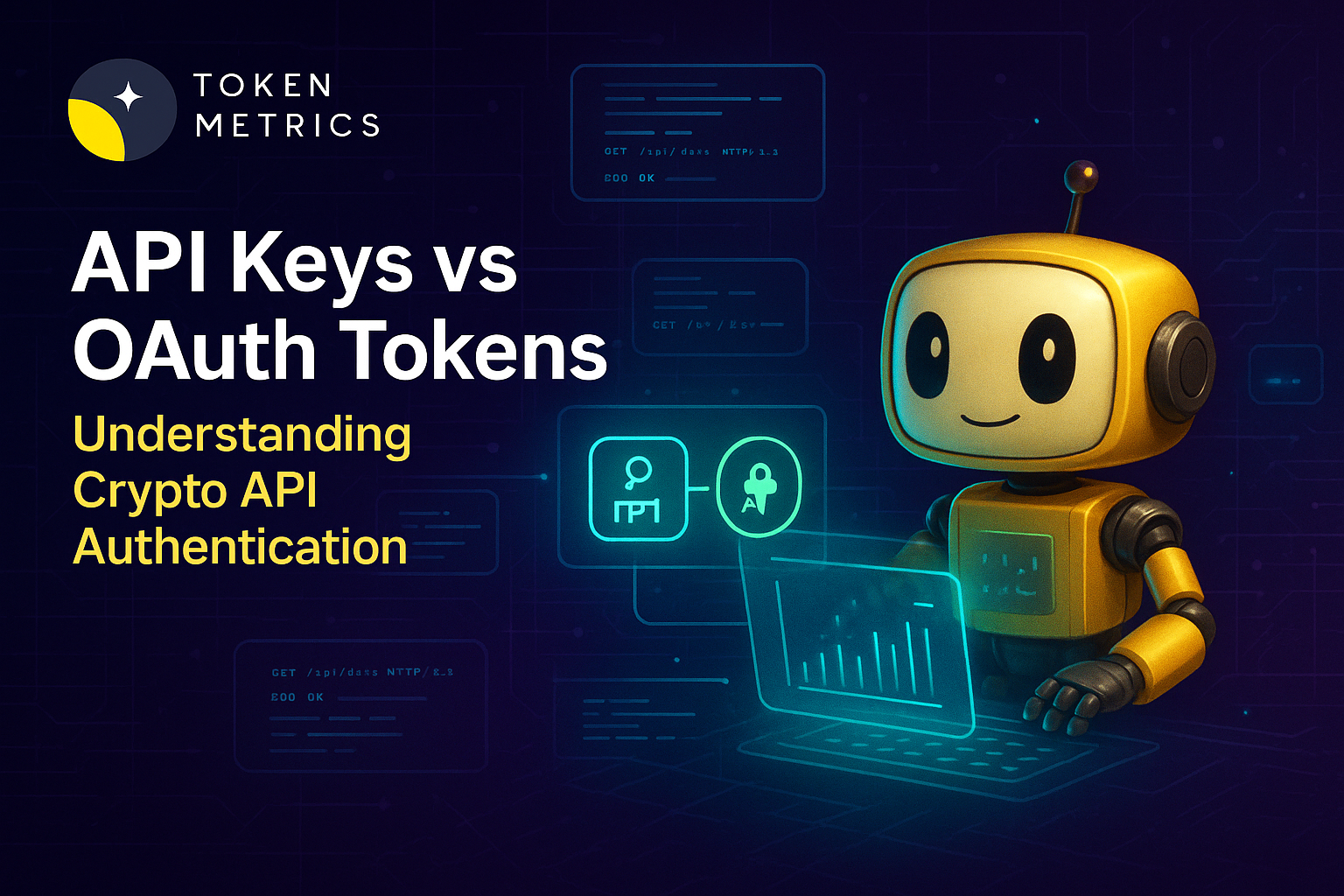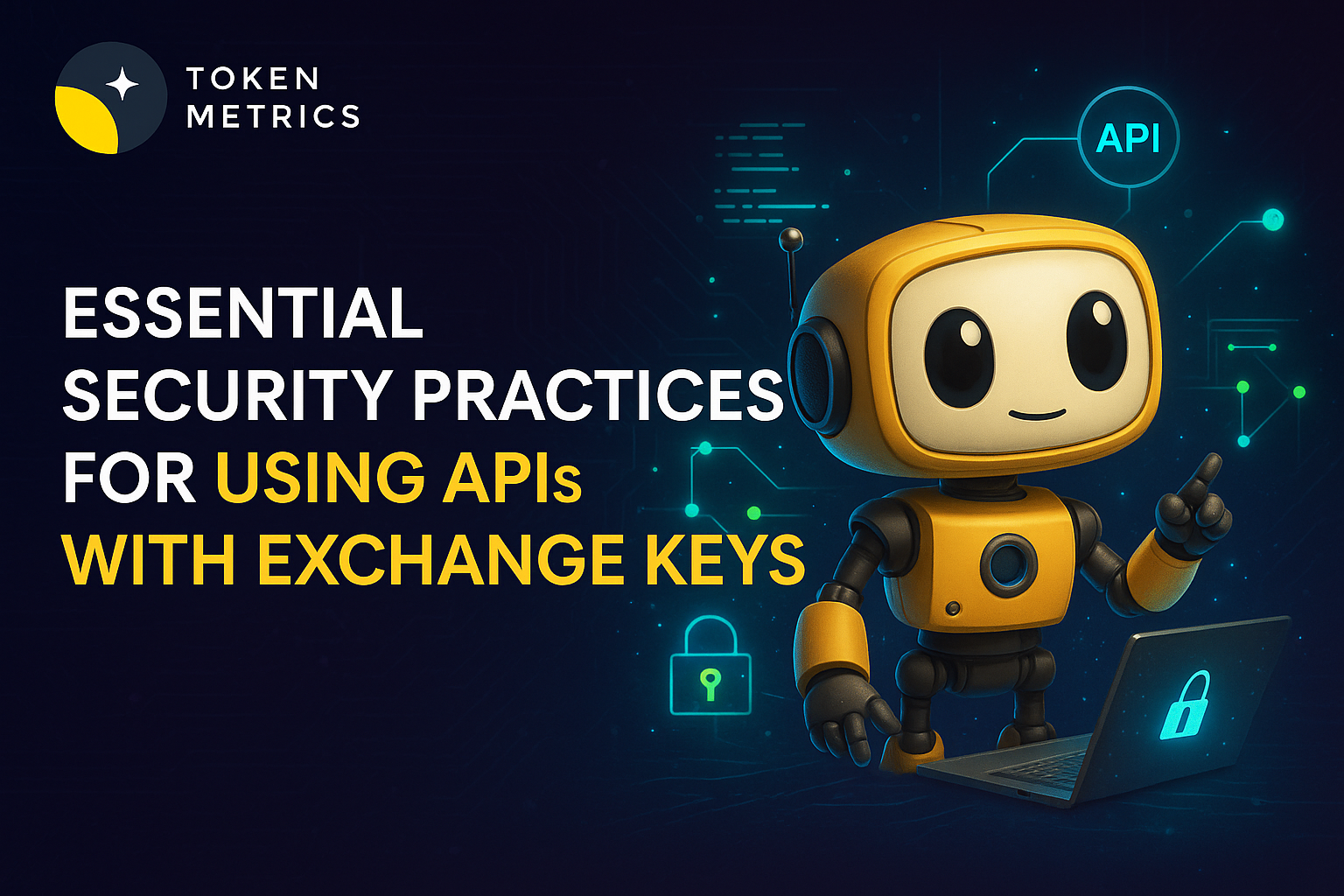10 Best Crypto Tools for Investors and Traders

Cryptocurrency trading is a thrilling yet challenging endeavor. To navigate this dynamic market successfully, you need the right tools. With the abundance of cryptocurrency tools available, finding the best ones can be overwhelming.
Fear not! This comprehensive guide will explore the top crypto tools for investors and traders in 2024. These tools will help you analyze the market, manage your portfolio, make informed decisions, and stay ahead.
Understanding Crypto Tools
Crypto tools are software applications, platforms, and resources specifically designed to assist traders and investors in the cryptocurrency market.
These tools provide various functionalities to help users manage their crypto assets, analyze market data, make informed trading decisions, and enhance their overall trading experience.
In today's digital age, where security is paramount, crypto tools utilize cryptography and cryptographic algorithms to securely transmit and store financial data.
Types of Crypto Tools
There are different types of crypto tools available, each serving a specific purpose within the cryptocurrency space. Let's explore the main categories of crypto tools:
1. Crypto Tracking and Portfolio Management Tools
Crypto tracking and portfolio management tools are essential for traders and investors to monitor their crypto investments effectively. These tools provide real-time data on crypto prices, market capitalization, trading volumes, etc.
They allow users to track their gains, review their portfolio's performance, and assess the value of each crypto asset. Notable tools in this category include CoinStats and CoinTracking.
2. Crypto Trading Tools
Crypto trading tools streamline the process by seamlessly providing a centralized platform to buy, sell, and trade cryptocurrencies.
These tools eliminate the need to navigate multiple exchanges and provide real-time market data, enabling users to capitalize on market opportunities swiftly. Tradedash and Coinigy are popular choices for crypto trading tools.
3. Crypto Tax Tools
Crypto tax tools simplify the management of taxes related to crypto transactions. These tools help users calculate profits, losses, and capital gains from their crypto trades and deduct relevant expenses.
They ensure tax compliance and provide a consolidated view of crypto holdings across multiple exchanges and wallets. Cointracking.info and Token Tax are standout options in this category.
4. Crypto Charting Tools
Crypto charting tools enable traders to visualize market trends, technical analysis indicators, and price patterns. These tools provide detailed charts to track and interpret market movements effectively.
By utilizing charting tools, traders can make informed decisions, strategize effectively, and optimize their trading performance. TradingView and Cryptowat.ch are highly regarded charting tools in the crypto space.
5. Crypto Research Tools
Crypto research tools offer comprehensive data and analysis to help investors make informed decisions. These tools provide information on price history, market capitalization, technical analysis, and on-chain data.
They analyze data from various sources, such as exchanges, blockchain explorers, and social media platforms, to create reports and visualizations. Notable crypto research tools include Token Metrics and Glassnode.
List of Best Crypto Tools
Now that we understand the different types of crypto tools, let's dive into the top 10 crypto tools for investors and traders in 2024. These tools have been carefully selected based on their features, user-friendliness, and overall reputation in the crypto community.
1. Token Metrics
Token Metrics is an innovative AI-powered analytics platform designed for crypto research and analysis. It leverages advanced machine learning algorithms and artificial intelligence to provide users comprehensive resources and insights for navigating the cryptocurrency market.
In addition to accurate predictions and forecasts, Token Metrics offers technical analysis tools, custom indicators, AI crypto indices, and AI chatbot to empower investors and traders to make informed decisions.
Moreover, it provides educational resources like webinars, tutorials, and market research reports to keep users updated on the latest crypto trends and developments.
Overall, Token Metrics is a valuable asset for anyone looking to invest in cryptocurrencies, offering a wealth of data and insights to navigate the dynamic crypto market effectively.
2. TradingView
TradingView is a widely used charting platform that provides real-time market data, advanced charting tools, and social trading features.
It offers various technical analysis indicators and drawing tools to help traders analyze market trends and make informed trading decisions.
TradingView also allows users to publish their trading ideas and analysis, creating a collaborative community of traders. With its extensive charting capabilities and social features, TradingView is a go-to tool for crypto traders.
3. CoinMarketCap
CoinMarketCap is one of the most recognized and widely used cryptocurrency market data platforms. It provides real-time data on thousands of cryptocurrencies, including prices, market capitalization, trading volumes, etc.
CoinMarketCap also offers a range of additional features, such as a news feed, educational resources, and a portfolio tracker. With its extensive coverage and user-friendly interface, CoinMarketCap is a go-to tool for crypto investors and traders.
4. Cryptowat.ch
Cryptowat.ch is a popular cryptocurrency charting and trading platform. It provides real-time market data, advanced charting tools, and customizable trading interfaces.
Cryptowat.ch offers various technical analysis indicators and overlays to help traders analyze price trends and patterns.
The platform also supports trading on multiple exchanges, allowing users to execute trades seamlessly. With its intuitive interface and extensive charting capabilities, Cryptowat.ch is a valuable tool for crypto traders.
5. Binance
Binance, the world's largest cryptocurrency exchange, controls over 70% of the crypto spot trading volume.
The platform provides a wide range of services, including spot trading, crypto loans, NFT marketplace, self-custodial crypto wallet, and various other offerings.
Moreover, Binance caters to the needs of advanced traders by providing access to its API, enabling them to execute sophisticated trades and seamlessly connect to automated trading platforms or crypto arbitrage scanners.
This comprehensive suite of services and features makes Binance a one-stop solution for individuals and institutions seeking to engage in cryptocurrency.
With its user-friendly interface and robust security measures, Binance has established itself as a trusted and reliable platform for cryptocurrency enthusiasts and professionals alike
6. Koinly
Koinly is a crypto tax tool that simplifies calculating and reporting taxes on cryptocurrency investments. It supports over 6,000 cryptocurrencies and integrates with popular exchanges and wallets to automatically import transaction data.
Koinly provides accurate tax calculations, including capital gains, income, and gift reports, and generates tax reports in various formats for easy filing.
With its user-friendly interface and comprehensive tax features, Koinly is a valuable tool for crypto investors and traders.
7. Tradedash
Tradedash is a powerful crypto trading platform that offers a range of advanced features for experienced traders. It provides a comprehensive trading interface with real-time market data, advanced charting tools, and customizable trading strategies.
Tradedash also offers advanced order types, such as stop-loss and take-profit orders, to help traders manage their risk effectively.
With its intuitive interface and advanced trading features, Tradedash is a top choice for traders looking to take their crypto trading to the next level.
8. DefiLlama
DefiLlama is a prominent platform that offers users a comprehensive understanding of the decentralized finance (DeFi) market.
By tracking a wide array of DeFi projects, it delivers detailed insights into each protocol's Total Value Locked (TVL), price, trading volume, and other vital metrics.
Moreover, it allows users to access real-time data on the top DeFi protocols, monitor their performance, view the composition of different DeFi portfolios, and assess their risk exposure.
With its user-friendly interface and advanced analytical tools, DefiLlama serves as a valuable resource for investors and traders navigating the dynamic DeFi ecosystem.
9. CoinDesk
CoinDesk stands out as a prominent source of cryptocurrency news, offering extensive coverage of blockchain and Web3 topics. Also known for its comprehensive reporting, the platform delivers crucial insights into crypto.
Moreover, CoinDesk hosts a diverse and popular podcast network, making it a go-to choice for crypto enthusiasts. Staying abreast of the latest developments is crucial for those conducting cryptocurrency research. CoinDesk emerges as a top-tier platform for accessing up-to-date information in this rapidly evolving industry.
10. Lunarcrush
Lunarcrush is an invaluable social media analytics tool for cryptocurrency enthusiasts and investors. It offers real-time data and analysis on various cryptocurrencies, including market capitalization, trading volume, price movements, and social media sentiment.
Notably, its advanced social listening capabilities allow users to track and analyze conversations and mentions about specific cryptocurrencies across platforms like Twitter, Reddit, and Telegram.
This grants valuable insights into community sentiment. Furthermore, Lunarcrush provides customized alerts, interactive tools, and charts like the HODL Waves chart, offering insights into long-term investor behavior and sentiment.
Frequently Asked Questions
Q1. Are crypto tools safe to use?
Crypto tools are generally safe if they have a good reputation, utilize strong security measures such as encryption and two-factor authentication, and have a reliable track record. Users need to do their due diligence and choose reputable tools.
Q2. Do crypto tools come with a cost?
While some crypto tools may offer premium (paid) versions with additional features, many essential crypto tools are free. Users can access basic features and functionality without incurring any costs.
Q3. Can crypto tools support all types of cryptocurrencies and NFTs?
The range of supported cryptocurrencies and NFTs varies depending on the crypto tool. Users need to check whether their chosen tool supports the specific cryptocurrencies and NFTs they are interested in.
Q4. How can users choose the right crypto tool for their needs?
Users should consider security, user interface, supported cryptocurrencies, fees, and customer support when selecting a crypto tool. Choosing a tool that aligns with your specific requirements and preferences is essential.
Q5. What are the advantages of using crypto tracking and portfolio management tools?
Crypto tracking and portfolio management tools allow users to monitor their crypto investments, track gains and losses, review portfolio performance, and assess the value of each crypto asset. These tools provide a consolidated view of holdings across multiple exchanges and wallets, enabling effective portfolio management.
Q6. What features should traders look for in crypto trading tools?
Traders should look for features such as real-time market data, advanced charting tools, customizable trading interfaces, order types, and seamless integration with multiple exchanges. These features enhance trading efficiency and enable traders to capitalize on market opportunities.
Q7. How do crypto tax tools simplify the tax management process?
Crypto tax tools automate the calculation of profits, losses, and capital gains from crypto trades. They provide tax reports in various formats, including capital gains, income, and mining reports, to simplify the tax filing process. These tools save time and ensure tax compliance for frequent crypto traders.
Q8. What are the benefits of using crypto research tools?
Crypto research tools provide comprehensive data and cryptocurrency analysis, helping investors make informed decisions. These tools offer insights into price history, market capitalization, on-chain metrics, and news. They enable users to stay updated on market trends, project fundamentals, and industry developments.
Q9. How can crypto charting tools aid traders in making trading decisions?
Crypto charting tools allow traders to visualize market trends, analyze technical indicators, and identify price patterns. These tools allow traders to make informed decisions based on chart patterns, support and resistance levels, and other technical analysis indicators.
Conclusion
In the dynamic world of cryptocurrency trading, the right tools can make all the difference. By leveraging the power of crypto tools, you can enhance your trading strategies, minimize risks, and optimize your investment opportunities.
These tools provide valuable insights and functionalities, from cryptocurrency exchanges and trading platforms to hardware wallets and market analysis resources.
Whether you're a beginner or an experienced trader, incorporating crypto tools into your trading journey can help you confidently navigate the crypto space and achieve your investment goals in 2024 and beyond.
Disclaimer
The information provided on this website does not constitute investment advice, financial advice, trading advice, or any other advice, and you should not treat any of the website's content as such.
Token Metrics does not recommend that you should buy, sell, or hold any cryptocurrency. Conduct your due diligence and consult your financial advisor before making investment decisions.
Create Your Free Token Metrics Account

.png)




%201.svg)
%201.svg)


%201.svg)










.svg)




.png)